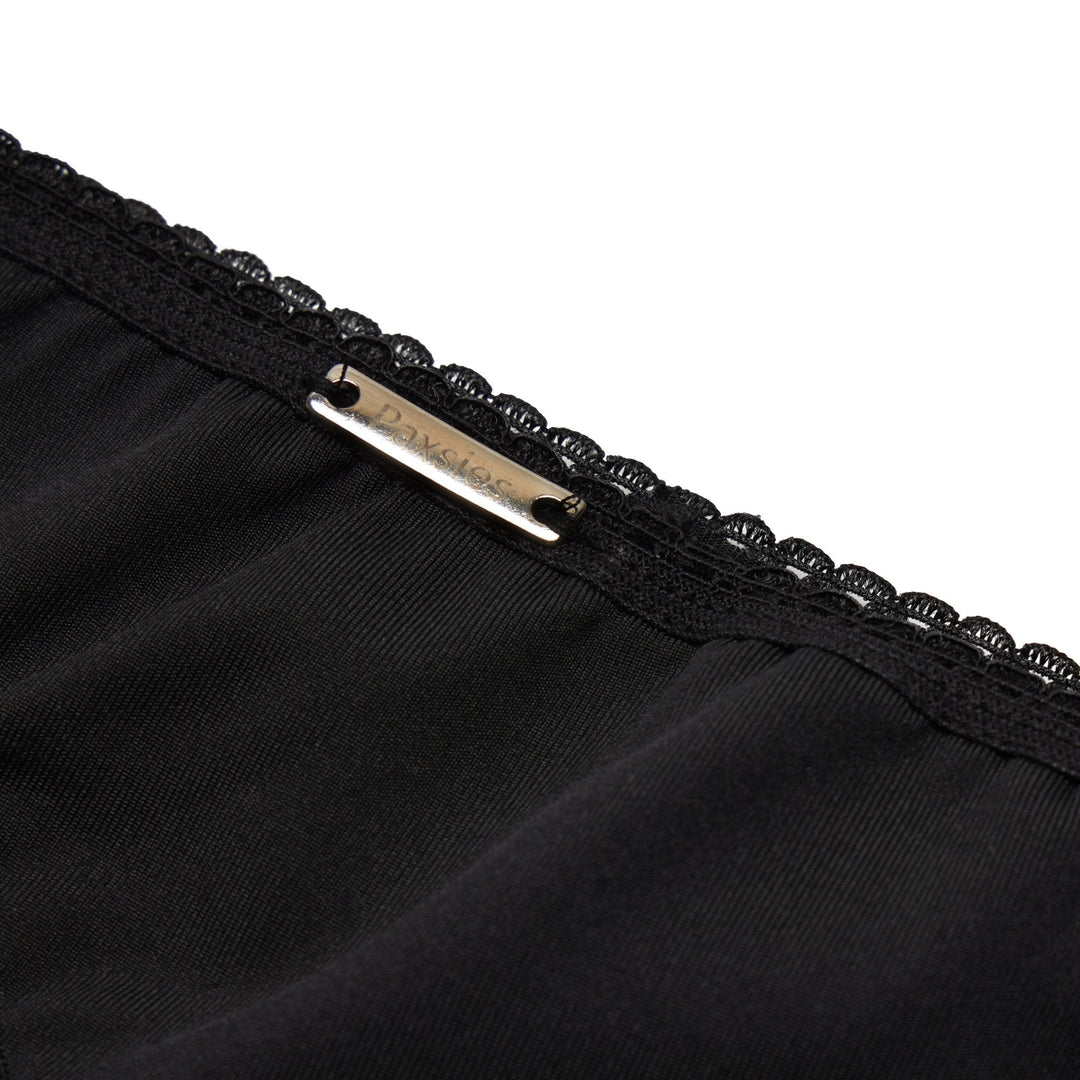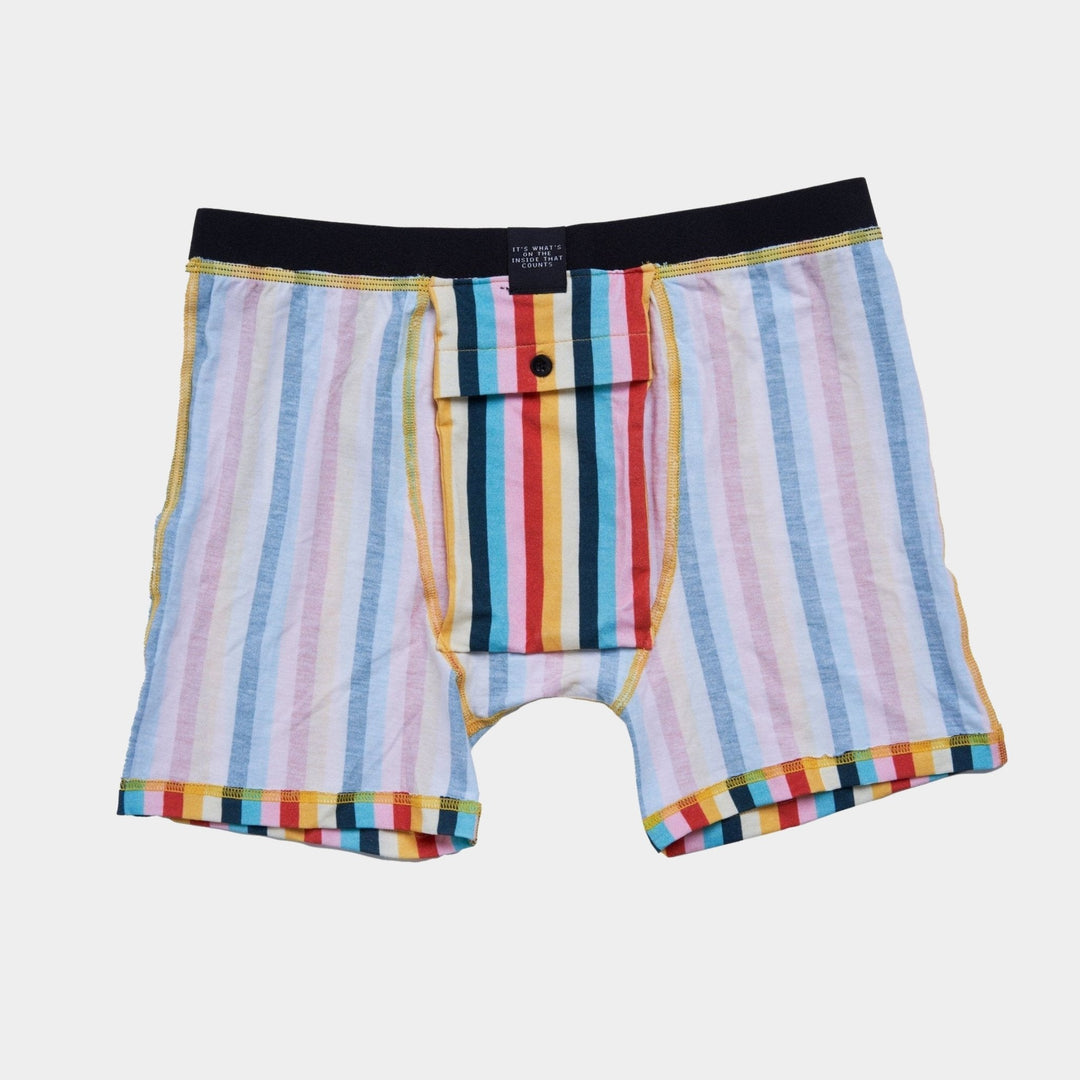Agender Pride Day 2024: 8 Questions Answered to Celebrate our Agender Friends
In a world full of genders, some people say “No Thanks.” That’s one simplified way of thinking about agender people. Agender Pride Day is May 19th every year, 2 days after the International Day Against Homophobia, Transphobia, and Biphobia.
Although the term ‘agender’ was coined in 2000, it’s still not as well known as other gender related identities such as transgender and non-binary. It’s included under the A in LGBTQIA+ but not always remembered. In this post, we’ll answer some common questions about the agender label, and help you celebrate Agender Pride Day 2021 with your agender friends.
1. What does the agender flag look like?
The most commonly used agender flag was created in 2014 on tumblr, and has 7 stripes in a mirrored pattern. The middle stripe is green, and then there is a gradient from white to grey to black above and below it.
2. What is Agender?
Agender as a word literally means without a gender, but as a label it can be used in a variety of ways. Common themes in how people use it include feeling they don’t have a gender, are unable to experience gender, don’t identity with any ‘available’ genders, or exist outside the concept of gender.
For more information about gender is, read this post here.
3. Is Agender the same as Non-Binary?
There can be some overlap between agender and non-binary labels, but they are not the same. Agender may fall under the non-binary umbrella for some people, or some might identify with both labels at once, but others might not feel any affinity for the non-binary label and consider agender a completely separate concept. Like all labels, there is no one singular definition or hierarchy of how labels are organised, so it really comes down to individual preference.
There are a few other terms which are sometimes used similarly or interchangeably, such as neutrois, genderless, null-gender, gendervoid, or neutral-gender.
4. Are agender people transgender?
Again, this really comes down to the individual. Some people will feel their understanding of agender falls under the transgender umbrella, and others won’t. Some agender people may socially or medically transition, and others won’t. It’s not possible to give a blanket statement that neatly puts all agender people into either the cis or trans boxes.
Similarly, some agender people may identity with other queer labels such as gay, lesbian, bisexual, pansexual, asexual, or they may not. The best thing to do as when you meet anyone is to not assume anything outside the information about themselves they give you.
5. Where did the term ‘agender’ come from?
The term ‘agender’ was first coined in 2000 on an online forum, where a user described God as ‘amorphous, agender.’ It was first used to describe people in 2005 on another online forum, as someone wrote “cultures can have transgender, agender, and hypergender individuals.”
By 2013, the label had gained popularity enough to be included in a New York Times piece titled “Generation LGBTQIA.”
In 2017, a 27 year old was granted permission by a Judge in Oregon to legally identity as agender. 2017 was also the year the annual Agender Pride Day was begun.
6. What does being agender look like? What does it mean to be agender?
As with all identities, there is no one set way an agender person has to look, especially as the identity is focused around not being any particular gender! They may pack or bind or tuck to achieve a different presentation they feel is more comfortable for them, but this is not a requirement by any means.
An agender person may use any pronouns, such as he/him, she/her, they/them, or less commonly known sets such as e/em or ze/hir.
It's also common for agender people to use it/its pronouns. If you're unfamiliar with someone who uses it/its, it can feel weird, rude, or even dehumanising to refer to someone like that, even if they've asked you to. But it's important to be respectful and considerate of other people's pronouns, even if they don't immediately 'make sense' to you.
An agender friend described it as not being called an object, but being called a presence, in the way you might say "a bird builds its nest," or "its wings are pretty." It/its pronouns can be useful for agender people who don't want the non-binary umbrella associations other gender neutral pronouns may have.
However, it is very important not to use it/its for people without their explicit permission to, as there is a history of it/its also being used in transphobic and ableist ways.
You can learn more about it/its pronouns here.
7. Are there any famous agender people?
There are several public figures who openly identify as agender, here’s a quick list of a few:
- Tyler Ford (they/them) – writer/activist for transgender rights known for speaking on their challenges as a transgender person of colour
- Angel Haze (she/her and he/him) – rapper/singer who includes his struggle with identity in his work
- sj Miller (they/them) – academic/public speaker/activist for LGBTQA youth
8. How to know if you're agender? Am I agender?
Only you can answer that question! But agender is a label or identity you’re interested in, there are a few things you can try out to help see if it’s a comfy fit for you. Trying out a more neutral name, hairstyle, new pronouns, or way of dressing can all give you a taste of different presentations.
You can also practice calling yourself agender either to friends (online or in person) or through journaling or whatever might help you get familiar to the sound and see if it sounds comforting or true.
Finally, you can look up other people’s experiences of being agender and see if you relate or find any of it useful. A few resources to get you started are this healthline article, this article from them. magazine, and neutrois.com’s resource list.
Special thanks to Janus for all your insights into being agender!








